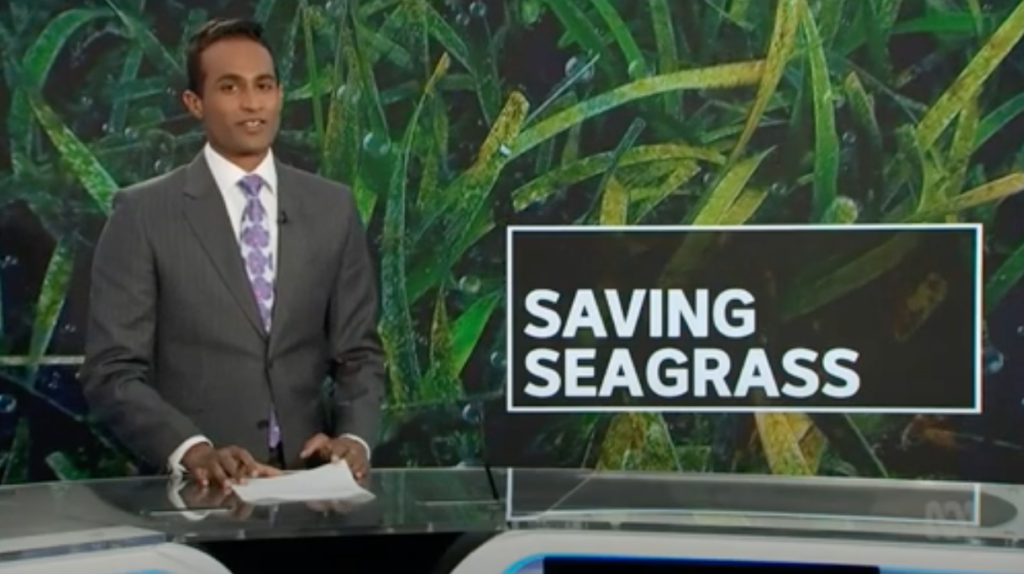Once again, seagrass has made the news, – this time in an ABC News NSW special report that was aired on Saturday 5 December 2020. The story informed viewers that seagrass isn’t just important for marine life, but is increasingly being recognised as a vital element in the fight against climate change as it stores and captures more than double the amount of carbon than forests on land.
The news segment drew viewers’ attention to the startling reality that seagrass, around the world, is disappearing so fast, that saving what’s left is no longer enough. Noting the extensive environmental damage from coastal developments, pollution and boating activities, scientists at the University of NSW are now working with the slow-growing Posidonia australis seagrass which is endangered in six locations in the State’s estuaries, including Pittwater. In Port Stephens, citizens and scientists have been painstakingly transplanting shoots back into the sea floor. The next step is to take this to other estuaries in the State, which we hope will include Pittwater.
The Palm Beach Protection Group commends the work of these citizens, scientists and researchers in the Port Stephens region. As the Northern Beaches Council is aware, Station Beach is home to the largest seagrass community in the Pittwater estuary, which includes the threatened Posidonia australis seagrass population.
It was a salutary reminder delivered by ABC News NSW and particularly important for those associated with Station Beach on-leash and off-leash dog decisions over the past eighteen months. It remains our desire that Council will protect Station Beach given its unique environmental sensitivity.

